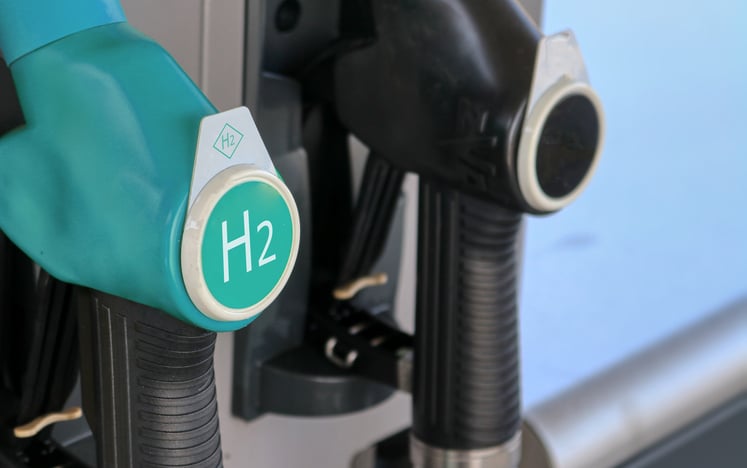The U.S Department of Energy is taking a major step forward with its plan to invest heavily in hydrogen-fueled technologies, including heavy truck fuel cells and associated delivery/storage systems. This exciting initiative will pump $750 million into the sector in an effort to drastically reduce the cost of these hydrogen technologies, making them more accessible.
“By investing in the cutting-edge research and development necessary to making market-ready clean hydrogen a reality, DOE is delivering on President [Joe] Biden’s promise to implement an ambitious climate agenda,” Energy Secretary Jennifer Granholm noted recently in the funding announcement, which she called “yet another exciting step toward lowering the cost of and scaling up clean hydrogen production.”
Hydrogen produced with net-zero carbon emissions has been designated by the agency as “a key pillar in the emerging clean energy economy” which will be essential to meet aggressive clean energy and carbon emissions milestones set for the coming years.
The notice of funding intent will be managed by the DOE’s Hydrogen and Fuel Cell Technologies office, stresses a particular focus on making hydrogen and fuel cell technologies for medium to heavy-duty trucks more accessible. It is aiming for breakthrough innovation in the form of investments into cost-cutting research and development projects that could revolutionize existing systems. Toward this goal, the agency has outlined four potential research topics.
- Hydrogen carrier development that can offer cost and performance advantages over conventional compressed gas or liquid hydrogen systems.
- Onboard storage systems for liquid hydrogen which would enable low-cost, energy-dense storage on medium- and heavy-duty trucks using fuel cells.
- Liquid hydrogen transfer and fueling components/systems to create high-flow transfer and vehicle fueling technologies and processes to fuel medium- and heavy-duty vehicles.
- Fuel cell stacks for medium- and heavy-duty trucks; specifically, they hope to develop membrane electrode assemblies to lower costs and enhance both durability and performance of proton-exchange fuel cell stacks.
The DOE encourages interested R&D stakeholders to form collaborative teams across technical disciplines rather than having a single organization apply for funds. The agency stated that it is likely to award financial assistance through cooperative agreements that could last up to four years.
It’s exciting to see the DOE working on research and development of hydrogen technologies that will make it more accessible and affordable for drivers of medium and heavy-duty trucks. This is an important step in reaching our net-zero carbon emissions goals, and it will be interesting to follow as these technological advancements unfold in the coming years.
Source: ttnews








